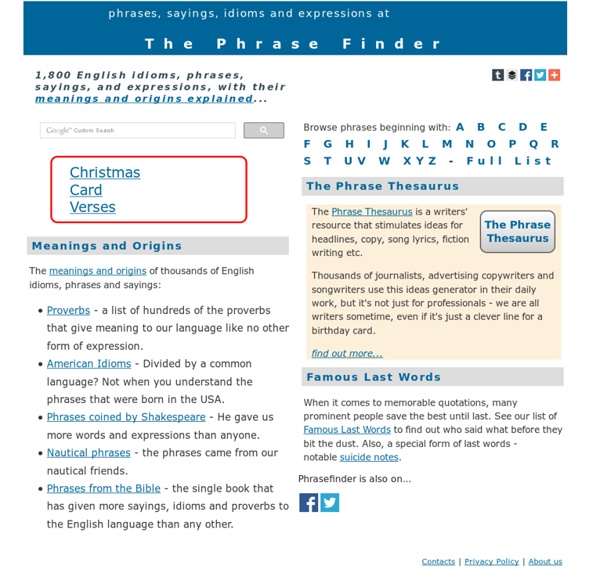



Etymologically Speaking... From the old Arabic word "hashshshin," which meant, "someone who is addicted to hash," that is, marijuana. Originally refered to a group of warriors who would smoke up before battle. Aaron White adds: You may want to explore the fact that the hashshshins were somewhat of a voodoo-ized grand conspiracy scapegoat cult (the very fact of their existence is impossible to confirm). They supposedly were a secret society (a la the FreeMasons) which was influential in every middle eastern court from Persia to Bangladesh. They were supposedly a brotherhood of assasins, devoted to their caballa and its secrecy, protected by an unlimited number of fanatical followers and unlimited material wealth.
English: what you need to know about the language english, english language, english lingusitics, english as a second language, english as a foreign language, english as the world What are the world's most widely spoken languages?In which countries is English the language spoken by the majority as a first language?In which countries is English an official language?
Conversation Questions for the ESL/EFL Classroom If this is your first time here, then read the Teacher's Guide to Using These PagesIf you can think of a good question for any list, please send it to us. Home | Articles | Lessons | Techniques | Questions | Games | Jokes | Things for Teachers | Links | Activities for ESL Students Would you like to help? If you can think of a good question for any list, please send it to us. Visual Dictionary, Visual Thesaurus Visuwords™ online graphical dictionary — Look up words to find their meanings and associations with other words and concepts. Produce diagrams reminiscent of a neural net. Learn how words associate. Enter words into the search box to look them up or double-click a node to expand the tree.
Differences in American and British English grammar - article By Kerry Maxwell and Lindsay Clandfield An article by Kerry Maxwell and Lindsay Clandfield on recognizing grammatical differences between American and British English. Introduction Speakers of American English generally use the present perfect tense (have/has + past participle) far less than speakers of British English. In spoken American English, it is very common to use the simple past tense as an alternative in situations where the present perfect would usually have been used in British English.
European Maps Showing Origins Of Common Words U.S. playwright Rita Mae Brown said: "Language is the road map of a culture. It tells you where its people come from and where they are going." That quote comes to mind looking at these fascinating European etymology maps of various commons words posted by reddit user sp07, which provide a kind of cultural commentary on Europe. The word for "church" shows the influence of ancient Greece: imgur/u/Bezbojnicul
Synonyms for the 96 most commonly used words in English Amazing — incredible, unbelievable, improbable, fabulous, wonderful, fantastic, astonishing, astounding, extraordinary Anger — enrage, infuriate, arouse, nettle, exasperate, inflame, madden Angry — mad, furious, enraged, excited, wrathful, indignant, exasperated, aroused, inflamed Answer — reply, respond, retort, acknowledge Ask– — question, inquire of, seek information from, put a question to, demand, request, expect, inquire, query, interrogate, examine, quiz
Queen - I Want It All Queen I Want It All The Miracle, 1989 I Want It All (Lyrics) I want it all, I want it all, I want it all, and I want it now Word Root Of The Day Archive « Previous1234Next » #120 Dec 01, 15 ego Movie Segments to Assess Grammar Goals: 27 Dresses: Present Perfect Romantic comedies are not my cup of tea, but they are wonderful sources of activities. 27 dresses is no exception. This scene is great for practicing the present perfect tense. I. Talk to a partner: 1. Have you ever had insomnia?
The Tower of Babel << Home Page The Tower of Babel An International Etymological Database Project Participants (so far): The Russian State University of the Humanities (Center of Comparative Linguistics) The Moscow Jewish University The Russian Academy of Sciences (Dept. of History and Philology) The Santa Fe Institute (New Mexico, USA) The City University of Hong Kong The Leiden University The main goal of the project is to join efforts in the research of long range connections between established linguistic families of the world.
12 Horrible Gobbledygook Words We Reluctantly Accepted Just as there is nothing certain in this world but death and taxes, there is nothing certain in language but that it will change, and that people will react badly. One of the changes people find most offensive is the spread of professional jargon that has been coined to replace simpler, clearer words we already have. Anyone up for some collaborative incentivizing going forward?